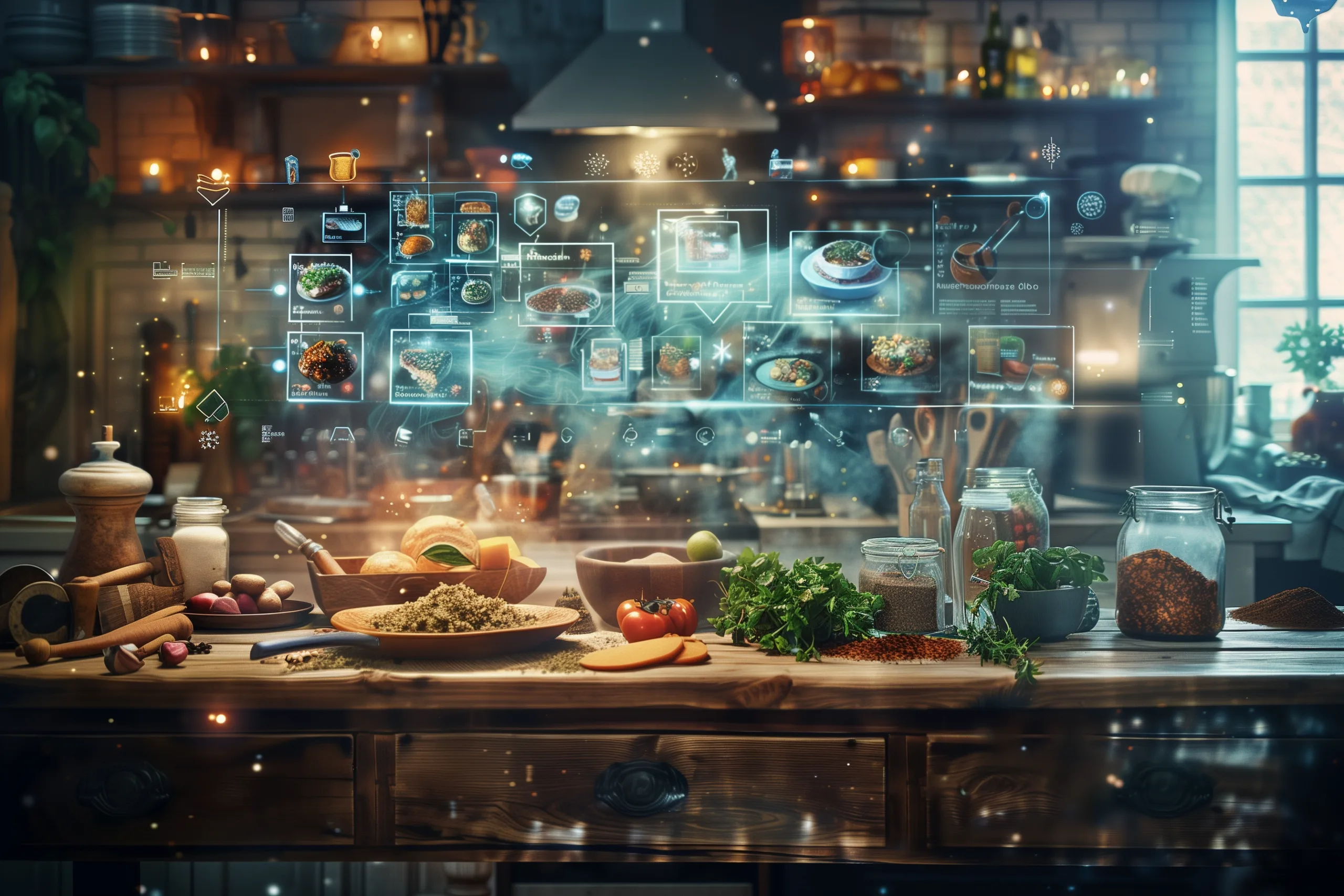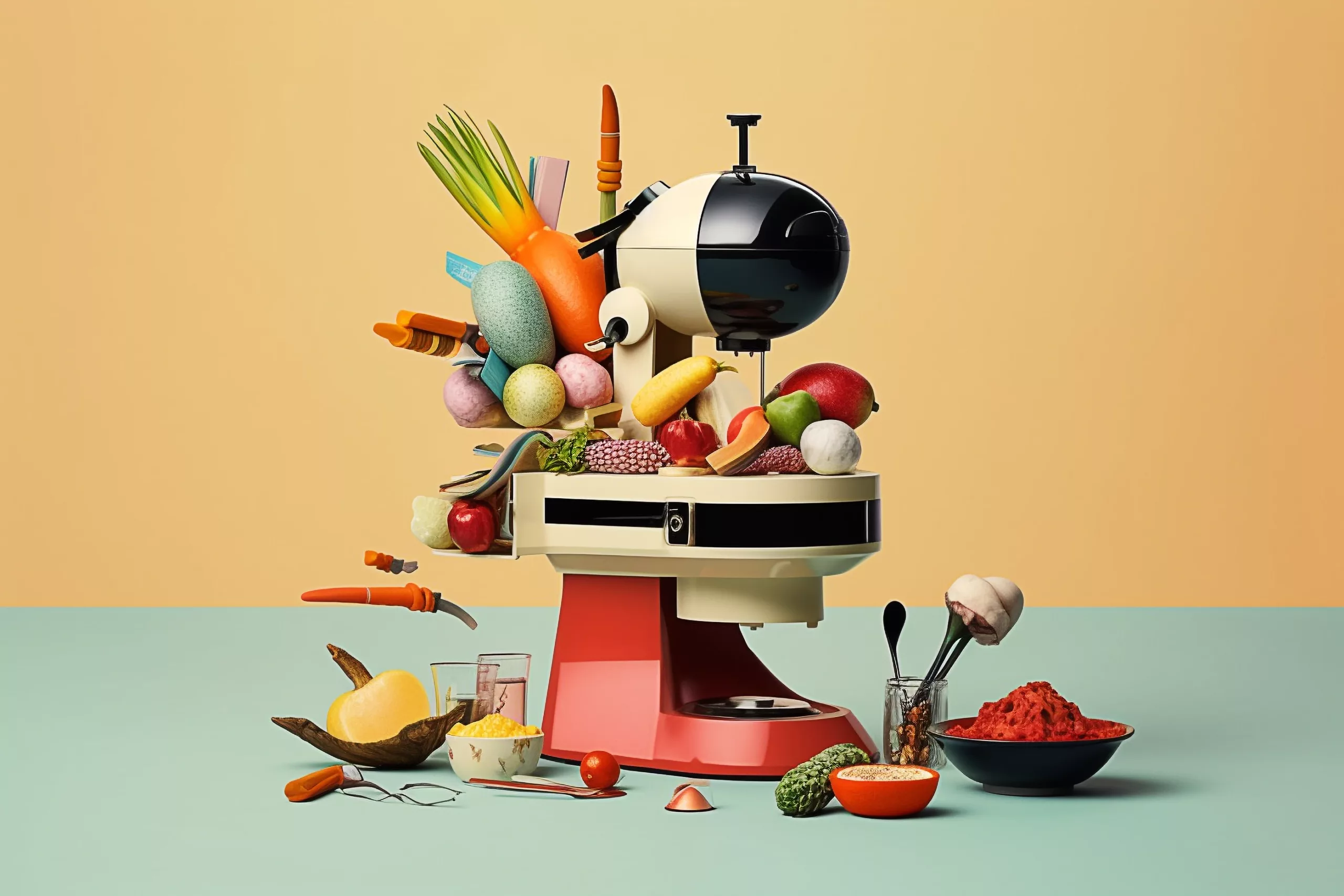published January 18, 2023 | 6 min read
As consumers become increasingly concerned about their health and that of the planet, the use of natural ingredients and less or no processing will remain high on consumers’ wish lists. AI will help meet their demands.
AI is already being used in the food industry to help with everything from food safety to menu planning. Chefs have begun experimenting with the use robots to prepare food, but concerns over safety and high prices have so far limited their use. However, as more advanced robots come to market, the cost issue should be alleviated and concerns about hygiene diminished.
The impact of artificial intelligence (AI) on the food and beverage industry has been significant over the past year, and it will only grow in years to come.

AI Robot chef cooking pizza
The rise of artificial intelligence in the food industry
The food industry is incredibly important across the globe. It is responsible for feeding billions of people every day. As populations continue to grow, so does the demand for food. The food industry is therefore turning to artificial intelligence (AI) to help meet this demand.




AI powered software for the food industry
AI-powered bee drones equipped with sensors can be used to monitor crops and predict when they will be ready for harvest. This information can then be used to schedule harvesting, which can help to reduce wastage. AI is also being used to generate new plant varieties that are resistant to pests and diseases. This can help to improve yields and reduce the use of pesticides.
With the use of AI, it is possible to improve the quality and consistency of food as well. AI-powered cameras can be used to grade beef and detect spoiled produce, while natural language processing algorithms can be used to monitor the quality of foods and recipes over time.




AI Bee drones on a sunflower field
How artificial intelligence is changing the food industry
This is only one of the many sectors that is being disrupted by artificial intelligence. From farm to table, AI is being used to increase efficiency and productivity, while also reducing costs.
Artificial intelligence allows farmers to more accurately target their irrigation and fertilization, resulting in healthier crops and higher yields. AI is also being used to develop new breeds of plants and animals that are less prone to pests and diseases.
In the food processing and manufacturing sector, AI is being used to optimize production lines and create new products. For example, AI is being used to create plant-based meat products that are indistinguishable from the real thing. AI algorithms can analyze image data to identify the components of a steak, then create a plant-based equivalent. These products have similar nutritional values as the original meat and can be customized to mimic the taste, texture and appearance of a premium steak or any other food item.




Plant-based hamburger created by AI
When it comes to transportation and logistics, AI will make it possible to automate the collection and analysis of data from trucks, ships and planes. This will enable companies to make smarter decisions about how to route vehicles and deploy workers. An AI-powered system could review data relating to temperature, humidity and altitude collected from GPS units on trucks to determine the best times for drivers to take breaks, or adjust their driving patterns in order to avoid certain areas.
Artificial intelligence is changing the food industry in a number of ways. One of the most important benefits being that it is helping to improve food safety. AI is being used to track food items throughout the supply chain. This is helping to ensure that food is not contaminated and that it is safe for consumption.
AI is also helping to improve the efficiency of food production. Farmers are using AI to predict weather patterns and to optimize irrigation systems. This is helping to reduce wastage and to improve crop yields. In the food processing industry, AI is being used to automate tasks such as sorting and packaging. This is helping to improve productivity and to reduce costs.




AI combine harvester in field
The challenges of artificial intelligence in the food industry
The food industry is one of the most rapidly changing industries in the world. With the advent of new technologies, the way we grow, process, and distribute food is constantly evolving. One of the most recent and significant changes has been the introduction of artificial intelligence (AI) into the food industry.
AI has the potential to revolutionize the food industry, from increasing efficiency in the supply chain to improving food safety. However, there are also challenges that come with implementing AI in the food industry. One of the biggest challenges is the lack of data. In order to train AI systems, data is required. However, the food industry is notoriously behind in data collection and management. This makes it difficult to train AI systems to be as effective.
In conclusion
In conclusion, AI is having a positive impact on the food industry. By improving safety, productivity and efficiency, AI will ensure that we have access to food even in times of crises such as natural disasters. However, there are challenges that come with implementing AI in the food industry such as the lack of data collection and management which makes it difficult to train AI systems to be as effective. Despite these challenges, AI has demonstrated its ability to revolutionize the food industry and create a safer, more efficient and productive industry









